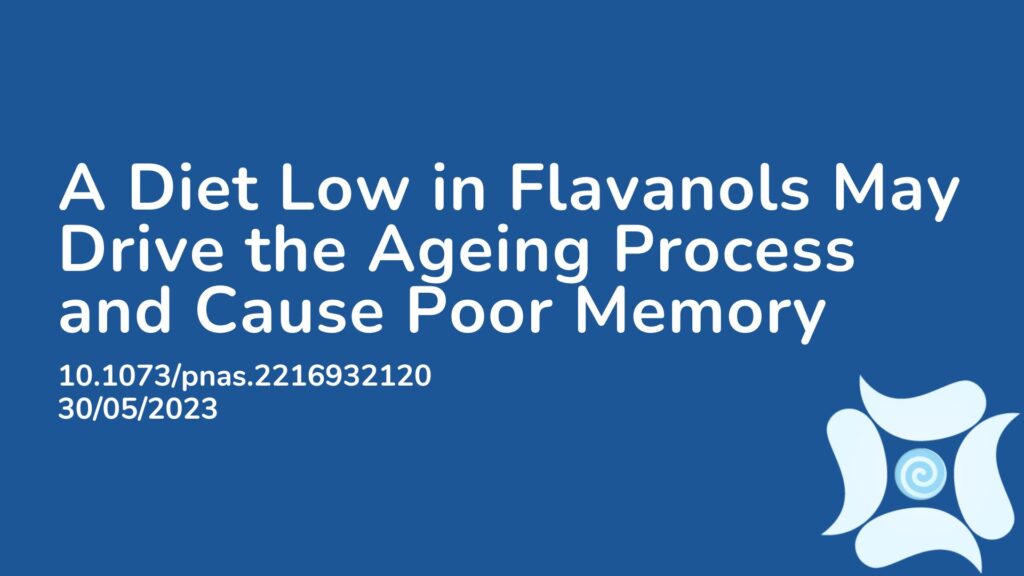Summary:
This large-scale study including 3,562 older adults established that a diet low in flavanols may drive age-related memory loss. The participants were randomly assigned to a 3 year intervention of cacao extract or a placebo. Flavanols are a type of polyphenol found in fruit and vegetables, largely present in foods such as cacao and citrus fruits. The researchers then tracked cognition such as memory loss and signs of ageing to see if they coincided with the increased flavanol consumption. The results showed that flavanol intake improved the performance on the cognitive and ageing tests and that a low flavanol diet can act as a driver of poor cognition and ageing.
Abstract:
Dietary flavanols are food constituents found in certain fruits and vegetables that have been linked to cognitive aging. Previous studies suggested that consumption of dietary flavanols might specifically be associated with the hippocampal-dependent memory component of cognitive aging and that memory benefits of a flavanol intervention might depend on habitual diet quality. Here, we tested these hypotheses in the context of a large-scale study of 3,562 older adults, who were randomly assigned to a 3-y intervention of cocoa extract (500 mg of cocoa flavanols per day) or a placebo [(COcoa Supplement and Multivitamin Outcomes Study) COSMOS-Web, NCT04582617]. Using the alternative Healthy Eating Index in all participants and a urine-based biomarker of flavanol intake in a subset of participants [n = 1,361], we show that habitual flavanol consumption and diet quality at baseline are positively and selectively correlated with hippocampal-dependent memory. While the prespecified primary end point testing for an intervention-related improvement in memory in all participants after 1 y was not statistically significant, the flavanol intervention restored memory among participants in lower tertiles of habitual diet quality or habitual flavanol consumption. Increases in the flavanol biomarker over the course of the trial were associated with improving memory. Collectively, our results allow dietary flavanols to be considered in the context of a depletion-repletion paradigm and suggest that low flavanol consumption can act as a driver of the hippocampal-dependent component of cognitive aging.
Article Publication Date: 30/05/2023
DOI: 10.1073/pnas.2216932120




